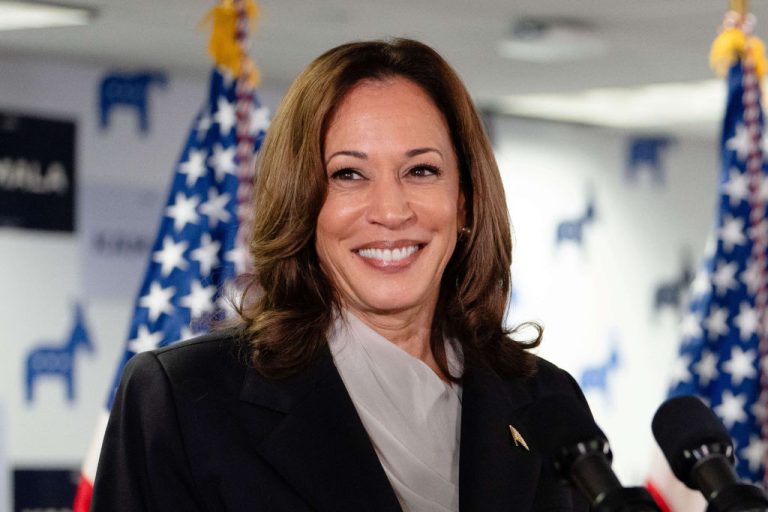White House advisor Cedric Richmond recently stated that President Joe Biden might consider other options for implementing his proposed infrastructure bill if it does not get the bipartisan support needed to get it passed.
The infrastructure bill, which is pegged at around $2.25 trillion, was recently reduced to $1.7 trillion by the White House as Democrats and Republicans negotiate the package.
In an interview with CNN, Richmond said that shaving off $550 billion from the initial proposal shows the president’s “willingness to negotiate in good faith and in a serious manner.” He questioned whether Republicans would “meet the effort” that Biden is showing.
“He wants a deal. He wants it soon, but if there’s meaningful negotiations taking place in a bipartisan manner, he’s willing to let that play out. But again, he will not let inaction be the answer. And when he gets to the point where it looks like that is inevitable, you’ll see him change course,” Richmond said to the media outlet.
In an interview with Fox News, Republican Senator Roy Blunt stated that the biggest issue between the two political parties regarding the bill is “defining what infrastructure is.”
Success
You are now signed up for our newsletter
Success
Check your email to complete sign up
Republican Senator Susan Collins also raised the issue in an interview with ABC News. “We, Republicans, tend to define infrastructure in terms of roads, bridges, seaports and airports, and broadband. The Democratic definition seems to include social programs that have never been considered part of core infrastructure,” she said.
Compromises
Biden’s initial infrastructure plan had set aside $400 billion for elderly and disabled care, $52 billion for investments in domestic manufacturers, $31 billion for small businesses, $30 billion for R&D job creation and innovation, $35 billion for clean energy tech and jobs, $100 billion for workplace training, and so on, according to the program’s fact sheet.
The GOP has proposed a $568 billion infrastructure bill, which exclusively caters to infrastructure projects and does not include any spending on unrelated areas like care for the disabled and elderly. The Republicans were planning to introduce a new proposal that would put the final budget at around $1 trillion, according to a May 26 report by CBS News.
The bill has received praise from Democrat Senator Joe Manchin who is also likely to oppose Biden’s attempt to pass the infrastructure bill without Republican support.
Another point of conflict between Republicans and Democrats is regarding taxes. President Biden has said that he is open to fixing the corporate tax rate “between 25 and 28 percent” to fund the infrastructure bill.
Former President Donald Trump had slashed the corporate tax rate through the 2017 Tax Cuts and Jobs Act to the current rate of 21 percent.
“We’re not interested in reopening the 2017 tax bill. We both made it clear to the president… That’s our red line,” Senate Minority Leader Republican Mitch McConnell said to reporters after a meeting with President Biden, reports Breitbart.
McConnell stated that in February 2020, the U.S had the best economy in the past 50 years as a consequence of Trump’s tax cuts.
House Minority Leader Republican Kevin McCarthy said that raising taxes would be “the worst thing you could do in this economy” and that no Republicans were going to support such a move.
Jobs, government debt, and GDP
Biden has also made false claims about the infrastructure plan’s ability to create jobs, according to a report by AP. The president apparently said that the plan would create “19 million jobs – good jobs, blue-collar jobs, jobs that pay well.”
Brian Deese, director of the White House National Economic Council, stated that “Moody’s suggests it would create 19 million jobs.” However, Moody’s has never stated such a thing, says AP.
Moody’s calculated that 16 million jobs would be generated in the United States by 2030 without the $1.9 trillion pandemic aid package or the infrastructure bill.
“Moody’s says the rescue plan will generate about 700,000 jobs over the next decade that otherwise wouldn’t have existed, and it says the infrastructure plan would create roughly 2.6 million over the next decade. That would total about 19 million, but with only a modest portion coming as a result of the infrastructure proposal,” the media outlet stated.
In a speech at Pittsburgh, Biden had called the $2.3 trillion infrastructure plan, also known as the “American Jobs Plan,” the “largest American jobs investment since World War II.”
A study published at the website of the University of Pennsylvania Penn Wharton found that the infrastructure plan might lead to a fall in GDP, but might also lessen government debt.
“The tax and spending provisions of the AJP (American Jobs Plan) would increase government debt by 1.7 percent by 2031 but decrease government debt by 6.4 percent by 2050. The AJP ends up decreasing GDP by 0.8 percent in 2050,” from the study.
However, the study warned that even though the plan could reduce public debt, the tax provision would discourage business investment.







